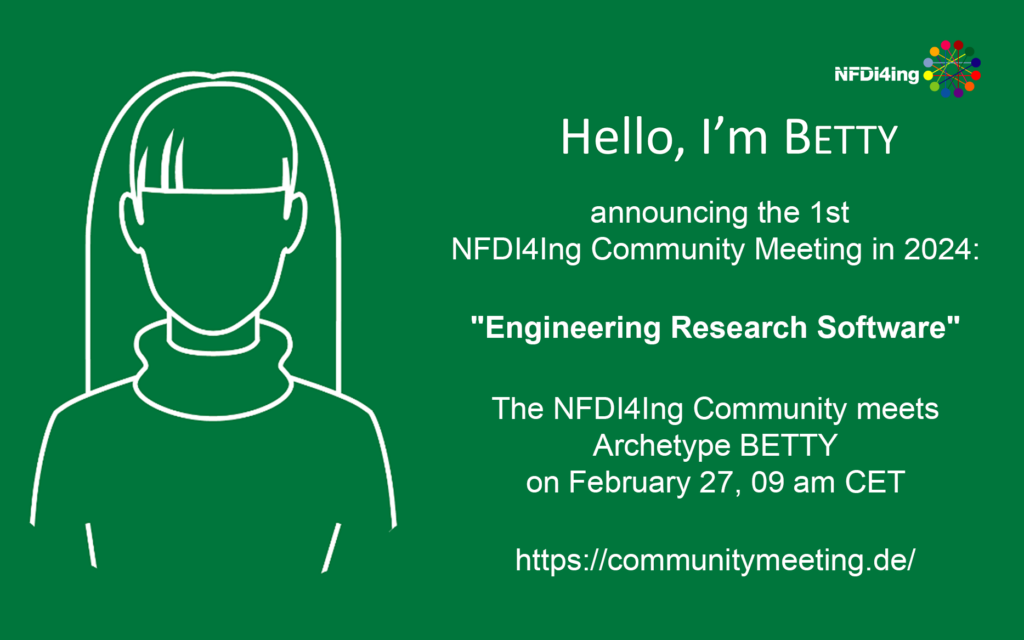
“Engineering Research Software – NFDI4Ing Community meets Archetype BETTY” – under this motto, the first NFDI4Ing Community Meeting of 2024 will take place online on February 27, 2024 (09:00 am – 13:00 pm CET).
The event is aimed at scientists from all engineering communities who are interested in research software. We want to introduce you to innovative tools, services and methods that make it easier for you to find, use and develop research software and handle the associated data and metadata.
The meeting is organised by task area BETTY and representatives of the construction engineering and architecture community in NFDI4Ing. The event language is English.
Further information can be found at: https://nfdi4ing.de/cm-betty-24/
You can register here (free of charge): https://communitymeeting.de/
We are looking forward to seeing you at the NFDI4Ing Community Meetings!
Bernd Flemisch
Jan Linxweiler
Katja Wermbter
